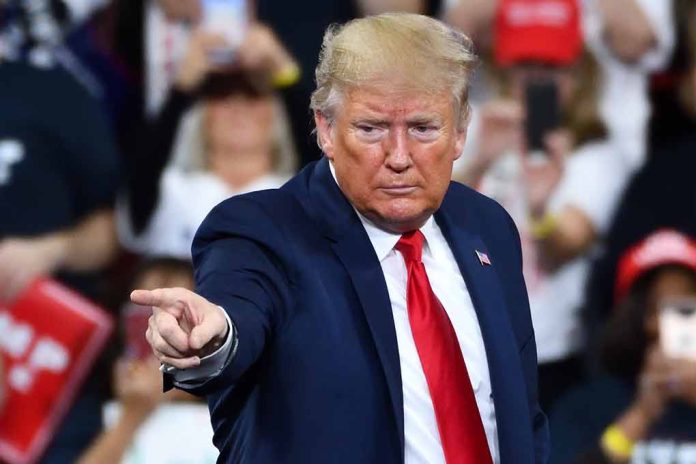
A contentious removal standoff ensues as Trump attempts to dismiss Ellen Weintraub, an FEC chair who resists vacating her post.
Key Takeaways
- Trump’s firing of Ellen Weintraub is legally contested as a procedural misstep.
- The FEC’s bipartisan structure faces disruption amid ongoing election complaints.
- Weintraub’s removal marks an unprecedented breach of FEC norms.
- Trump’s simultaneous dismissal of federal watchdogs triggers legal scrutiny.
- Political debates ignite over Trump’s impact on government oversight.
Weintraub’s Standoff
Donald Trump issued a letter on January 31, attempting to remove Ellen Weintraub from her position as chairwoman of the Federal Election Commission. Weintraub, however, refused to comply, asserting that the move violated the proper legal procedure for replacing FEC commissioners. The FEC consists of equal representation from both major parties, often resulting in deadlocked decisions. Weintraub was first appointed by President George W. Bush and continues to serve despite the expiration of her formal term.
Trevor Potter criticized Trump’s action against Weintraub, indicating a breach of legal and constitutional standards. He suggests that Trump has alternatives, such as nominating new commissioners, reflecting Congress’s role in this process. Daniel Weiner also highlighted that historically, no FEC member from the opposing party has been removed by a president without naming a successor recommended by the party’s congressional leaders.
Implications for Election Oversight
The controversy regarding Weintraub has magnified concerns about the FEC’s ability to manage its caseload effectively. The agency is currently processing numerous complaints from the 2024 election cycle, including allegations involving Elon Musk, a prominent Trump donor. Weintraub’s refusal to leave her post underscores the urgency of clarifying appointment processes to ensure election integrity and consistent governance.
“In the entire history of the bipartisan FEC, no president has ever removed a member from the opposing party without naming a successor recommended by that party’s congressional leaders. This is an extraordinary break from that history.” – Daniel Weiner
The broader implications of Trump’s actions highlight unprecedented interference with electoral oversight and the necessity for legislative clarity in these processes.
Controversy Over Inspector General Firings
Beyond the FEC, the Trump administration’s broader strategy included the removal of multiple federal watchdogs, raising further concerns. Notably, inspectors general from key departments were dismissed, allegedly without the required 30-day notice to Congress, sparking legal challenges. Critics like Chuck Schumer and Hannibal Ware denounce these firings as an affront to governmental accountability.
“These firings are Donald Trump’s way of telling us he is terrified of accountability and is hostile to facts and to transparency.” – Chuck Schumer
Republican lawmakers have also voiced concerns, illustrating a rare bipartisan consensus over these dismissals. The debate centers on the potential erosion of independent oversight critical to democracy’s health.
Sources:
- Trump tries to fire chair of Federal Election Commission. Why she’s refusing to leave.
- Trump fires at least a dozen government watchdogs
- Trump Fires Head of Federal Election Panel, But She Won’t Leave







